*This page may include affiliate links, which means that if you make a purchase through one of the product links, we may receive a small commission. For full affiliate disclosure please see our disclaimer page.
Does dog poop help plants grow? It’s a common question that lots of pet parents ask. I’m going to show you why dog poop does not belong in the garden. We will learn what makes dog poop different from other types of manure. Then, I will outline the risk to your family and the risk to your garden plants.
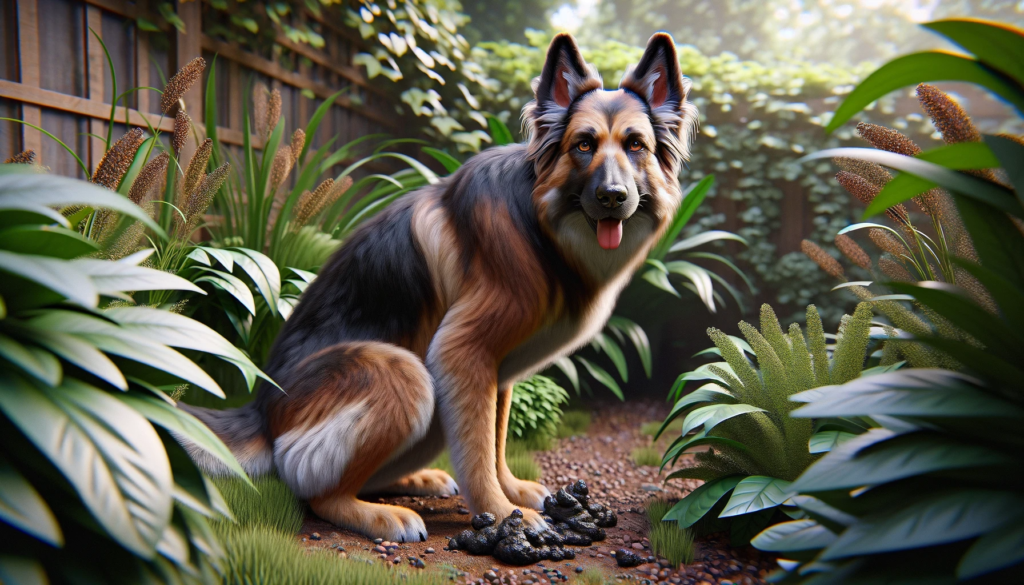
What Makes Dog Poop Different From Other Types Of Manure?
At first glance it would seem like using dog poop in your garden to help plants grow would be a great idea. Because we know that cow, horse, and sheep manure is sold by the bag at your local garden center. People pay money for manure to add to their garden, why not just save money and use your dog’s poo?
Well, thats not a good idea in general because a dog’s poop is different from other animal’s feces. The number one reason why your dog’s number two is different – is diet. Dogs are carnivores while cows, horses, and sheep are herbivores. This means that those farm animals only eat plants and dogs mostly eat meat. Yummy!
In order to extract energy from plants, many herbivores have complicated digestive systems. Their gastrointestinal systems are full of helpful bacteria. I like to call an herbivore’s GI system in this context a phase 1 “composter”. The good bacteria do the main work of breaking down food into nutrients that the animal can absorb. All of this internal composting makes cow dung a nice start to fertilizer.
In dogs, meat is digested quite differently and the end result is a stinky pile of proteins with a nice side dish of bacteria and parasites. We will circle around to cover why this mixture is not good for plants, but first, we will cover the most important topic – your family’s safety and health.
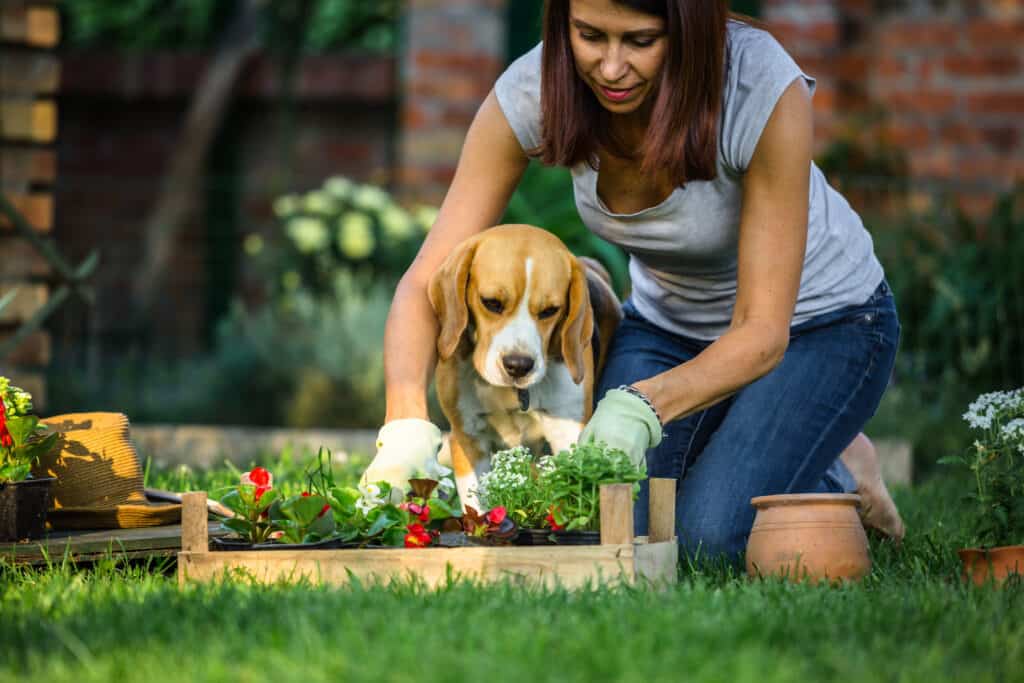
Risks To Your Family If Dog Poop Is Used In The Garden
Dog poop could potentially contain harmful bacteria or parasites. These organisms can make family members extremely sick. Most of the symptoms of infection revolve around the digestive tract. Commonly seen signs are diarrhea, vomiting, cramps, and fever. However, some of these illnesses can be advanced, or even deadly in a person with a compromised immune system.
| Important Reminder : When you or a family member handles the dog’s “business”, please remember to wash your hands thoroughly to prevent disease transmission. |
Most Common Zoonotic Bacteria & Parasites In Dog Poop
A quick rundown of the most commonly found bacteria and parasites in dog poop will stir up some familiar feces….I mean faces.
Common dangerous bacteria and parasites in dog poop include:
- Roundworm
- Tapeworm
- E. Coli
- Giardia
- Salmonella
- Crypto
- Campylobacter
I have created a quick table below that outlines some of the most dangerous bacteria and parasites that can be found in dog feces along with the diseases they are related to.
Common Bacteria & Parasites in Dog Poop
| Roundworms ( Toxicara canis ) | Worm larva in eyeball globe, other larval migrants, potential blindness |
| Tapeworm ( Echinococcus ) | Pain, malnutrition, weight loss, malaise, vitamin deficiencies, liver failure |
| E. coli ( Escherichia spp ) | Stomach cramps, septicemia, vomiting, diarrhea, nausea, fever |
| Giardia ( Giardia lamblia, duodenalis, intestinalis ) | Diarrhea, feces with mucous, abdominal cramps, vomiting, dehydration |
| Salmonella ( Salmonella enteritidis ) | Fever, flu-like symptoms, diarrhea, vomiting, muscle aches, headache |
| Crypto ( Cryptosporidium ) | Extremely watery diarrhea, dehydration, weightloss, vomiting |
| Campylobacter ( Campylobacter jejuni + spp. ) | Diarrhea, ulcers, stomach pain, Guillan-Barre syndrome |
Resources:
https://www.cdc.gov/parasites/echinococcosis/disease.html
https://www.cpha.ca/human-diseases-transmitted-dog-poop
https://www.cdc.gov/parasites/toxocariasis/disease.html
Multiple Zoonotic Pathogens Identified in Canine Feces Collected from a Remote Canadian Indigenous Community
Am J Trop Med Hyg. 2010 Aug 5; 83(2): 338–341. https://www.ncbi.nlm.nih.gov/pmc/articles/PMC2911181/
Risks To Your Garden Plants If Dog Poop Is Used
The composition of dog excrement can also pose a threat to your garden plants. Due to those nutrition differences, we discussed above, dog poop is high in nitrogen. Substances that are super high in nitrogen can damage plants. The damage is most commonly called “burns”. These injuries to your garden plants can destroy leaves, stems, flowers, fruits, seeds, and roots. It can also interfere with the natural cycle of plants to flower and bloom.
Doggie defecation gifts are also a very acidic pH. Just like “burn” from nitrogens, acidic compounds can also “burn” plants. The high acid content can directly damage the plants. Additionally, the acid can seep into the ground, killing good bacteria and all kinds of living soil microbes. In an unbalanced soil ecosystem, plants cannot acquire what they need and growth can be severely stunted.
Here are a few of my favorite pooper scoopers, poo bags and waste disposal systems.
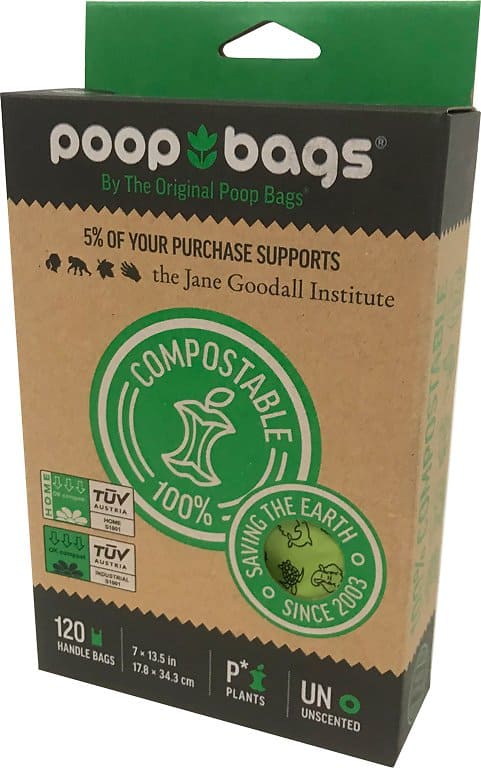
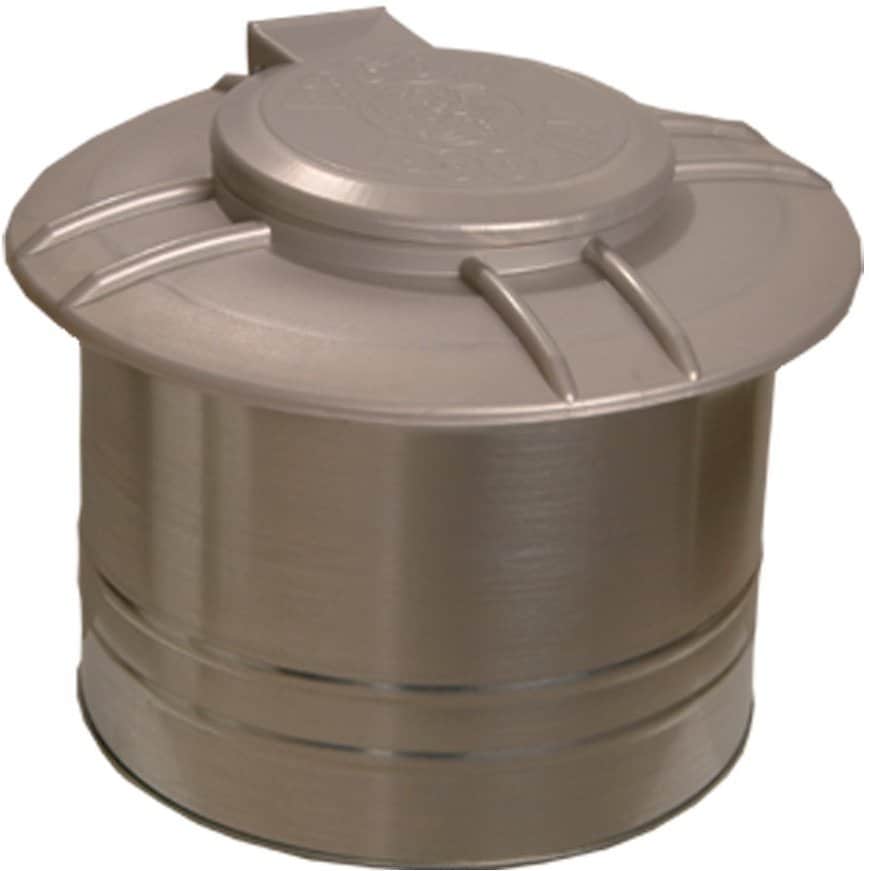
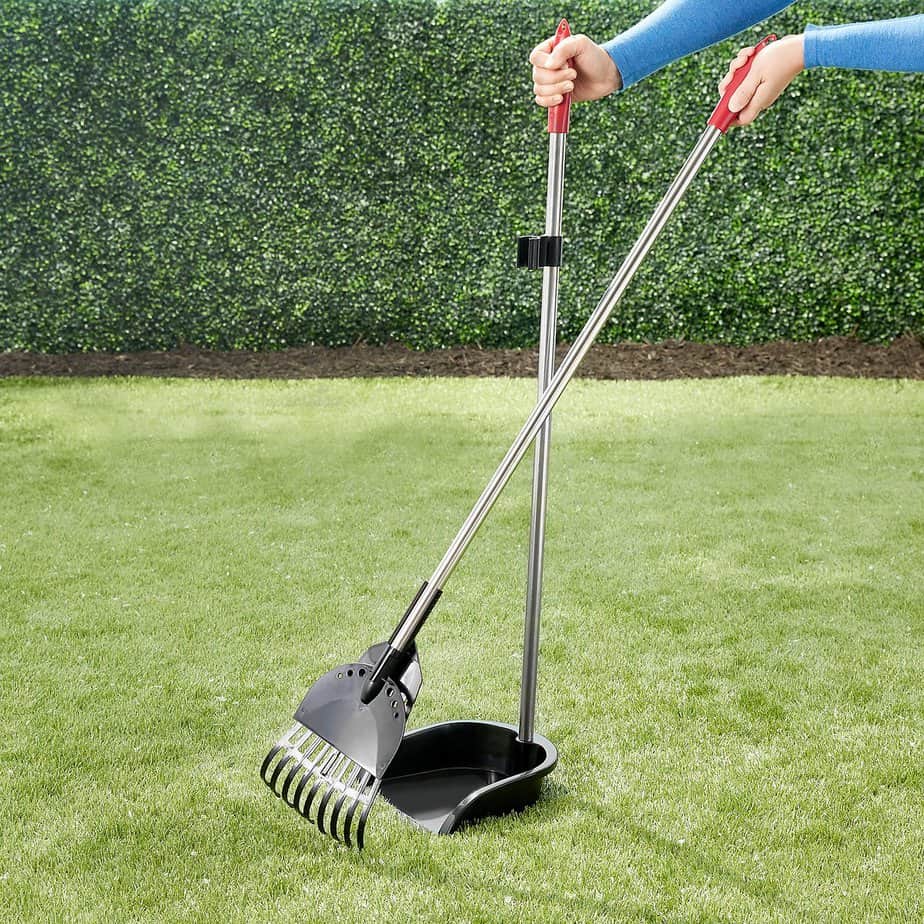
Composting Dog Poop
After learning that dog poop is not good in our garden, the next logical question is what to do with it? Can you compost dog poop and then use it after a full compost cycle? Most garden experts do not recommend composting dog poop.
Some super composters have a perfected compost process that can decompose almost anything. It’s both an art AND a science for proper decomposition. You have to have the right temperature, the right hydration, the right airflow, and the right bacteria and fungi. I personally am an expert in dog health, but only a novice in the garden. So, I will point you to other resources if you want to learn the specific details about composting.
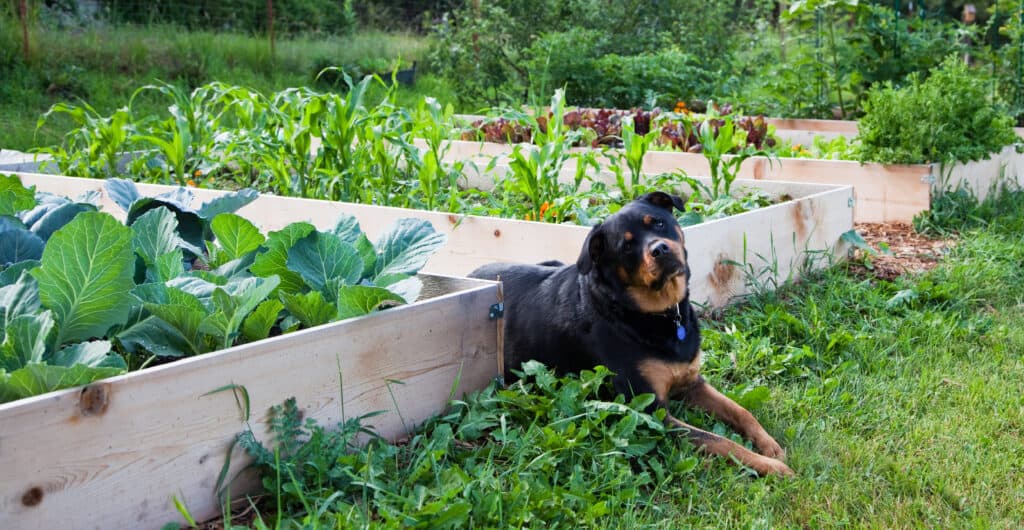
Now you’ve got the scoop on dog poop – and the do’s and don’ts of doo doo. Please share this article with friends or family, our goal is to help as many dogs as possible find health and happiness.
Thanks for checking us out, scroll down for more healthy happy dog tips.
“Deuces”,
~ Dr. Candy Akers
Check out our other articles for even more knowledge to keep your dog healthy and happy!
7 Beneficial Herbs For Dogs That You Can Grow In Your Garden
Can Dogs Eat Blueberries? Are Blueberries Good For My Dog?
Let us know your dog’s name on your favorite social media platform.
